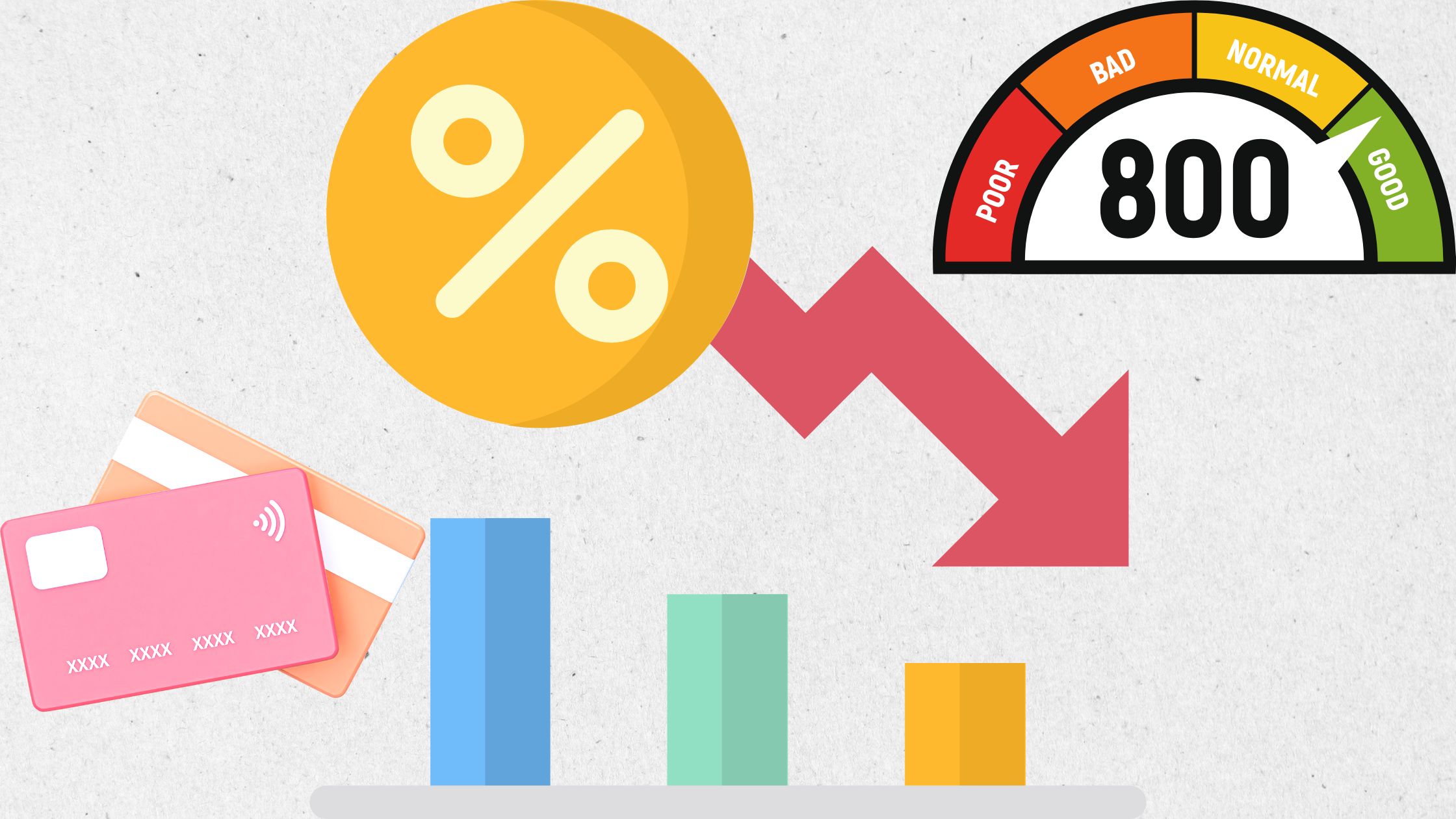When life throws financial challenges your way, maintaining a good credit score can feel like an uphill battle. A low credit score often leads to higher interest rates on loans and credit cards, making it difficult to regain financial stability. However, there are solutions available, including credit cards designed for those with bad credit. In this article, we’ll explore how to manage bad credit, the benefits of credit cards with lower interest rates, and provide recommendations for some of the best options available.
Understanding Bad Credit
What is Bad Credit?
Bad credit typically refers to a credit score below 580 on the FICO scale, which ranges from 300 to 850. This can occur due to various factors, including:
- Late Payments: Failing to make payments on time can significantly impact your credit score.
- High Credit Utilization: Using too much of your available credit can signal to lenders that you are overextended.
- Bankruptcy or Foreclosure: These serious financial events can stay on your credit report for up to ten years.
- Hard Inquiries: Multiple credit applications in a short time can negatively affect your score.
Consequences of Bad Credit
Having a low credit score can lead to:
- Higher Interest Rates: Lenders view those with bad credit as high-risk borrowers, resulting in higher interest rates on loans and credit cards.
- Difficulty in Obtaining Loans: You may face challenges getting approved for loans or credit products.
- Higher Insurance Premiums: Many insurance companies use credit scores to determine premiums.
- Limited Housing Options: Landlords may conduct credit checks and deny applications based on poor credit.
The Importance of Lower Interest Rates
Lower interest rates on credit cards can make a significant difference in your financial recovery. Here’s why:
Saving Money
High-interest rates can lead to accumulating debt quickly. By choosing a credit card with a lower interest rate, you can save money on interest payments, allowing more of your monthly payment to go toward paying down the principal balance.
Improving Credit Score
By managing debt effectively with a lower interest credit card, you can demonstrate responsible credit usage, which can help improve your credit score over time. This creates a positive feedback loop: as your score improves, you may qualify for even better financial products.
Emergency Fund
Lower interest rates can provide peace of mind, knowing that in case of an emergency, you won’t be drowning in high-interest debt. This can be particularly important for those rebuilding their financial lives.
Finding the Right Credit Card for Bad Credit
When searching for credit cards that cater to individuals with bad credit, consider the following features:
1. Lower Interest Rates
Look for cards that offer lower APR (Annual Percentage Rate) as this can significantly impact the total cost of borrowing.
2. No Annual Fees
Many credit cards charge annual fees, which can add to your financial burden. Seek cards with no annual fees to minimize costs.
3. Rewards Programs
Some credit cards offer rewards programs even for those with bad credit. Look for cards that provide cashback or points for purchases to maximize your benefits.
4. Credit Reporting
Choose a credit card that reports to all three major credit bureaus (Equifax, Experian, and TransUnion). This will ensure your responsible credit behavior is reflected in your credit score.
5. Flexible Payment Terms
Look for cards that offer flexible payment options. This can help you manage your debt more effectively.
Recommended Credit Cards for Bad Credit
1. Capital One Platinum Credit Card
- APR: Variable APR starting at 26.99%
- Annual Fee: $0
- Credit Limit: Initial credit limit varies, with opportunities for increase after responsible use.
- Benefits: No foreign transaction fees and no annual fee make this a solid choice for those looking to rebuild credit.
2. Discover it® Secured Credit Card
- APR: Variable APR of 24.99%
- Annual Fee: $0
- Credit Limit: Secured deposit required, which becomes your credit limit.
- Benefits: This card offers cashback on purchases and reports to all three credit bureaus, helping you rebuild your credit.
3. Credit One Bank® Platinum Visa® for Rebuilding Credit
- APR: Variable APR of 23.99% – 25.99%
- Annual Fee: $0 – $99, depending on your creditworthiness.
- Credit Limit: Initial limit varies; cardholders can request increases after six months.
- Benefits: Offers rewards on eligible purchases and provides free access to your credit score.
4. OpenSky® Secured Visa® Credit Card
- APR: Variable APR of 19.64%
- Annual Fee: $35
- Credit Limit: Secured deposit required, ranging from $200 to $3,000.
- Benefits: No credit check required for approval, making it accessible for those with poor credit.
5. Indigo® Platinum Mastercard®
- APR: Variable APR of 24.90%
- Annual Fee: $0 – $99 based on creditworthiness.
- Credit Limit: Varies; cardholders may receive increases over time.
- Benefits: This card features pre-qualification with no impact on credit score, making it easier to assess eligibility.
Strategies for Managing Bad Credit
While having a credit card with a lower interest rate can help, managing your finances effectively is crucial for improving your credit score over time. Here are some strategies:
1. Create a Budget
Develop a budget that includes all your income and expenses. This will help you identify areas where you can cut back and allocate more funds toward paying down debt.
2. Pay on Time
Always pay your bills on time. Setting up automatic payments or reminders can help you avoid late fees and further damage to your credit score.
3. Keep Balances Low
Aim to keep your credit utilization ratio below 30%. This means if you have a credit limit of $1,000, try to keep your balance under $300.
4. Monitor Your Credit Report
Regularly check your credit report for errors or inaccuracies. If you find any, dispute them with the credit bureau. You can request a free credit report from each of the three bureaus annually at AnnualCreditReport.com.
5. Consider Credit Counseling
If you’re struggling to manage your debt, consider working with a credit counseling service. These professionals can help you create a plan to pay off your debt and improve your credit score.
The Long-Term Benefits of Rebuilding Credit
Rebuilding your credit may take time, but the benefits are significant:
1. Access to Better Financial Products
As your credit score improves, you’ll qualify for better loans and credit cards with lower interest rates and higher limits.
2. Increased Financial Freedom
A good credit score provides more flexibility in financial decisions, such as buying a home or financing a vehicle.
3. Peace of Mind
Having a solid credit score reduces financial stress and provides peace of mind knowing you can access credit when needed.
4. Improved Insurance Rates
With a better credit score, you may find lower premiums on auto and homeowners insurance.
5. Enhanced Employment Opportunities
Some employers conduct credit checks during the hiring process. A good credit score can improve your chances of landing a job.
Also Read: Top Secured Credit Cards for Bad Credit – Rebuild Your Score
Final Thoughts
Dealing with bad credit can be overwhelming, but understanding your options can empower you to take control of your financial situation. Credit cards with lower interest rates offer a pathway to managing debt more effectively, ultimately leading to a healthier credit score. By following best practices for credit management, creating a budget, and staying disciplined, you can navigate the challenges of bad credit and work towards a brighter financial future.
In summary, while bad credit presents its challenges, it’s crucial to remember that you have the power to make changes and improve your situation. With the right tools, resources, and a commitment to responsible financial practices, you can overcome the obstacles and regain control of your credit.

